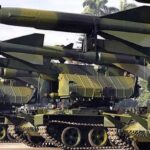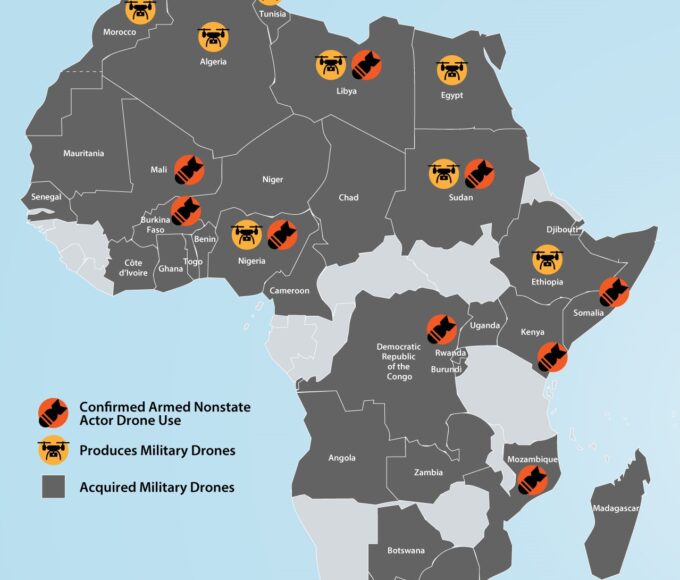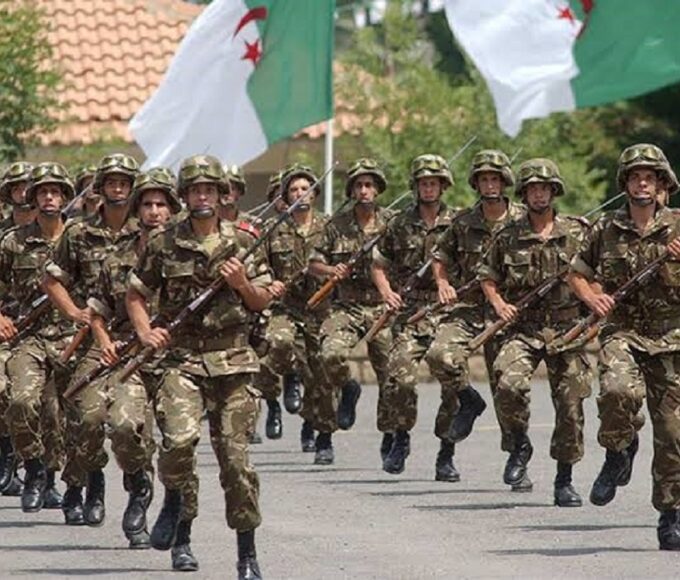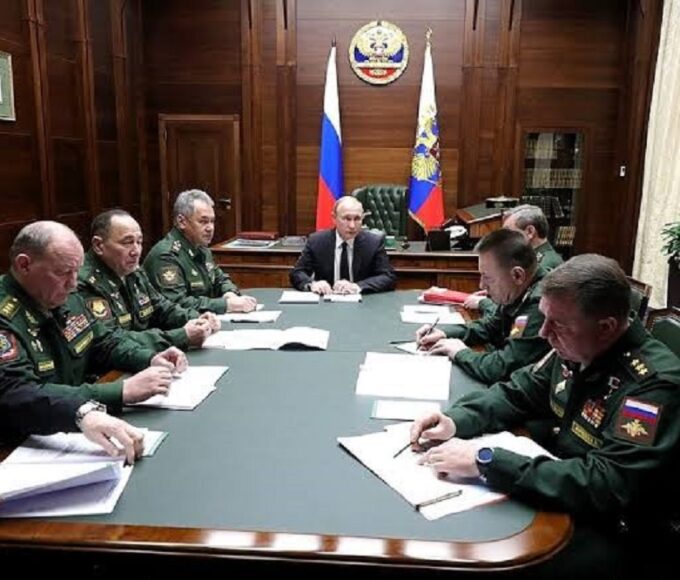GLOBAL SECURITY WATCH – UKRAINE WAR LESSONS FOR AFRICAN DEFENCE PLANNERS
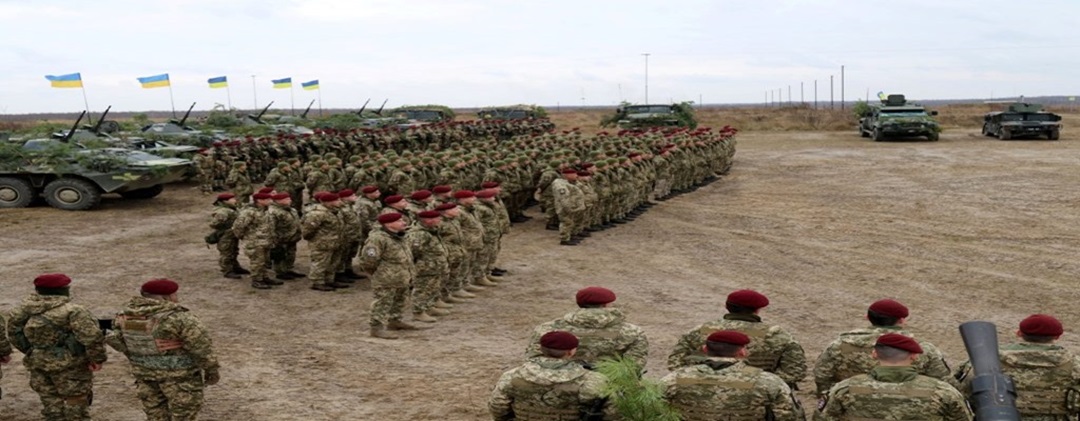
The ongoing Russia-Ukraine war, now entering its fourth year as of 2025, serves as a critical case study for African defence planners grappling with diverse threats ranging from insurgencies to interstate tensions. Unlike traditional conflicts, this war highlights the intersection of modern technology, geopolitical rivalries, and economic shocks, offering parallels to Africa’s volatile security landscape, where resource constraints and external influences often dictate outcomes. For African nations, lessons from Ukraine underscore the need to adapt to protracted, high-intensity warfare while addressing vulnerabilities in supply chains and alliances, potentially reshaping defence strategies across the continent.
EMBRACING DRONE TECHNOLOGY AND AUTONOMOUS SYSTEMS
Drones have revolutionised the battlefield in Ukraine, democratizing air power through affordable, commercially sourced unmanned aerial vehicles (UAVs) that extend operational reach and minimise personnel risks. African defence planners can draw from this by investing in cost-effective drone fleets for surveillance, reconnaissance, and precision strikes, particularly useful against asymmetric threats like terrorist groups in the Sahel or East Africa. The war demonstrates that even resource-limited forces can leverage ‘do-it-yourself’ weapons and AI-enabled systems to counter superior adversaries, urging African militaries to prioritise rapid prototyping and integration of such technologies to enhance tactical flexibility.
READ ALSO: WHY AFRICA NEEDS A UNIFIED DEFENCE POLICY FOR THE 21ST CENTURY
MASTERING INFORMATION AND PSYCHOLOGICAL OPERATIONS
Information operations have emerged as a decisive domain in Ukraine, where cyber attacks, disinformation, and narrative control have influenced both domestic morale and international support. For African contexts, this lesson emphasises building robust psychological operations (PSYOPs) to counter extremist propaganda and foreign interference, as seen in Russia’s use of narratives to sway global opinion. Defence planners should foster public trust through transparent communication and leverage social media for cognitive warfare, ensuring that non-state actors’ expertise sharing does not undermine national security in regions prone to misinformation-driven conflicts.
ENHANCING ELECTRONIC WARFARE CAPABILITIES
The contested electromagnetic spectrum in Ukraine has challenged assumptions of dominance, with GPS jamming and communications disruptions highlighting the need for agile electronic warfare (EW) systems. African militaries, often operating in remote and infrastructure-poor environments, can apply this by developing AI-integrated EW tools and mesh networks to maintain command and control amid interference. Public-private partnerships for spectrum management are essential, as the war shows how commercial technologies like satellite communications can provide resilience against sophisticated adversaries.
SECURING LOGISTICS IN CONTESTED ENVIRONMENTS
Ukraine’s experience reveals the vulnerabilities of traditional logistics to precision strikes and hybrid threats, necessitating disaggregated, resilient supply networks and innovations like 3D printing for on-site production. In Africa, where vast terrains and poor infrastructure amplify logistical challenges, defence planners should focus on stockpiling essentials and enhancing survivability to sustain operations during prolonged conflicts. This approach can mitigate disruptions from external shocks, ensuring that forces remain operational even when facing resource exploitation or blockades similar to those in Ukraine.
ADDRESSING THE MERCENARY THREAT
The potential post-war influx of mercenaries, including expanded Wagner Group operations, poses significant risks to African stability, with human rights violations and resource exploitation exacerbating insurgencies. Defence planners must counter this through sanctions, regional cooperation via bodies like the African Union, and long-term security sector reforms to reduce reliance on private military companies. Lessons from Ukraine’s territorial defence highlight the value of local mobilisation over foreign mercenaries, urging African nations to build civilian trust and address disinformation to prevent political instability.
FOSTERING INTERNATIONAL ALLIANCES AND DIPLOMATIC SUPPORT
Ukraine’s success in garnering Western aid underscores that alliances are crucial for sustaining protracted wars, providing equipment, training, and diplomatic backing. For Africa, this means cultivating diversified partnerships, including with Ukraine for military training and technology transfers, while navigating geopolitical rivalries to avoid becoming proxies in global conflicts. Initiatives like Ukraine’s diplomatic push in Africa, including grain aid and summits, illustrate how non-traditional allies can bolster food security and defence capabilities amid external pressures.
Economic shocks from the Ukraine war, such as commodity price spikes, have exposed African vulnerabilities, emphasising the need for trade diversification and domestic production to withstand global disruptions. Defence planners should integrate economic resilience into strategies, recognising that fiscal stability supports military sustainability and reduces dependence on volatile partners like Russia or China. Ultimately, the war’s lessons advocate for adaptive learning, ethical conduct, and preparedness for multi-domain threats, enabling African nations to forge robust, self-reliant defence postures in an unpredictable world.
King Richard Igimoh, Group Editor ALO
King Richard Igimoh, Group Editor African Leadership Organisation is an award-winning journalist, editor, and publisher with over two decades of expertise in political, defence, and international affairs reporting. As Group Editor of the African Leadership Organisation—publishers of African Leadership Magazine, African Defence & Security Magazine, and Africa Projects Magazine—he delivers incisive coverage that amplifies Africa’s voice in global security, policy, and leadership discourse. He provides frontline editorial coverage of high-profile international events, including the ALM Persons of the Year, the African Summit, and the African Business and Leadership Awards (ABLA) in London, as well as the International Forum for African and Caribbean Leadership (IFAL) in New York City during the United Nations General Assembly.
Recent Posts
Categories
- Air & Aerospace17
- Border Security15
- Civil Security6
- Civil Wars4
- Crisis5
- Cyber Security8
- Defense24
- Diplomacy19
- Entrepreneurship1
- Events5
- Global Security Watch6
- Industry8
- Land & Army9
- Leadership & Training5
- Military Aviation7
- Military History27
- Military Speeches1
- More1
- Naval & Maritime9
- Policies1
- Resources2
- Security12
- Special Forces2
- Systems And Technology9
- Tech6
- Uncategorized6
- UNSC1
- Veterans7
- Women in Defence9
Related Articles
BEST DEFENCE POLICY PAPERS ON AFRICA IN THE LAST DECADE
Between 2016 and 2026, defence policy thinking on Africa shifted in response...
ByKing Richard Igimoh, Group Editor ALOJanuary 26, 2026BEST DEFENCE POLICY PAPERS ON AFRICA IN THE LAST DECADE
Between 2016 and 2026, defence policy thinking on Africa shifted in response...
ByKing Richard Igimoh, Group Editor ALOJanuary 23, 2026THE ALGERIAN WAR OF INDEPENDENCE: TACTICAL LESSONS
The Algerian War of Independence (1954–1962) remains one of the most instructive...
ByKing Richard Igimoh, Group Editor ALOJanuary 22, 2026DEFENCE MINISTERS’ MEETINGS: OUTCOMES THAT MATTER
As geopolitical pressures intensified in 2025, defence ministers’ meetings shifted from routine...
ByKing Richard Igimoh, Group Editor ALOJanuary 21, 2026





